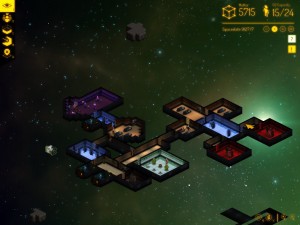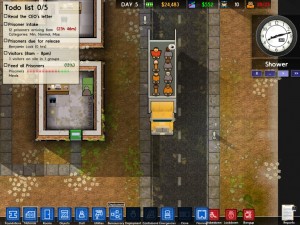The big shocker for Early Access/crowdfunding lately would have to be Doublefine pulling the plug on their first Early Access title — Spacebase DF9. The game according to them will move from alpha 6 to release in October with most of the planned features scrapped in favor of letting the players mod them in.
As you can guess, a lot of people are not happy about this failing from Doublefine, especially after the breaking up of Broken Age into two parts. Looking at its development and Doublefine’s response, there are important lessons here for developers on what not to do with Early Access.
Staying in the Light:
A few weeks ago I made a post about mistakes Indie developers make and while Doublefine really isn’t considered an Indie, they’ve made some big mistakes with how they handled Spacebase DF-9.
If you look at their development map which is now on the front page of the site, you’ll notice how for the first three months of development following their Early Access release in October of 2013 that they were releasing monthly updates and keeping the community aware of what’s going on.
Then there was a huge dip in communication, starting with the Amnesia Fortnight game jam with major delays in patches from that point on. This is something that you can’t do with Early Access titles compared to working on a game with the backing of a publisher.
With a publisher, as long as there is progress being made, they will continue funding a game to a certain point. But with crowd-funding, people expect results as you’re already taken their money and going dark like that is not how you build consumer confidence.

Space base’s development progress has been delayed and stagnant for awhile now and not something to base a continuing budget model on.
Honestly there is no excuse that Doublefine can give as to why there were delays in communication and updates on the game.
A great counter example would be Introversion Software with Prison Architect who have released monthly updates and builds with rare exception. And even during that exception, the developers made it clear that they were taking a month off from updates, unlike Doublefine who just disappeared without any word.
At this point, unless you can commit to monthly or every other month builds released, you should wait before you put your game on sale. By disappearing and not keeping people informed, sales of Spacebase slowly dipped which even though the developers reported that the initial sales made back the development cost, still led to a finance problem which was compounded by the lack of communication.
Unable to Sustain Development:
The lack of communication also meant that people weren’t aware of Spacebase’s production model which was also a big mistake. According to Tim Schafer who made a post about it , Spacebase was going to have an open ended production plan. Meaning that despite making enough money to cover the initial development, they were going to work on it for as long as money was coming in which could also explain their huge list of features planned.
Unfortunately this kind of thinking is not good for several reasons. First is that Doublefine did not have a set plan for Spacebase and pretty much wanted to ride out as much profit and sales from the game as they could. When you look at other Early Access titles while they were making money through development, they still had an end goal to reach.
Prison Architect has been in development for over two years now and they’re still adding features. But it’s not like they’re just coming up with new things on the side to keep adding to the game and extending development.
The second problem is that when you don’t have a set schedule or list of features, it makes effectively developing the game harder. Developers like Failbetter Games and Gaslamp Games have early access titles on Steam. Both of them have a game plan on what to focus on that their respective fan bases know about.
But Doublefine’s “shoot from the hip” attitude meant that it was hard to see actual progress as opposed to just more stuff being added to the game which again hurt the perception of the title. Game development is about having a plan for development and building off of it as time goes on. A great example of the failure of Doublefine’s logic would be the fact that reactors used to power your base which is a basic requirement, didn’t make it into the alpha until the last build which as we all know was heavily delayed.

What has helped made Prison Architect a success was having a clear goal, open communication and continued updates from the developers.
Critical systems and the game’s foundation should always be the first to be developed as you’re building the rest of your game on top of them. If there is a problem with them, that could affect all your other systems and cause delays and hiccups in development.
Going back to Prison Architect, Introversion was smart in their development and worked at adding in the core functionality before developing additional systems and content. A good foundation cannot be understated when it comes to game development. As we talked about with Ernest Adams and my post on harmonizing game design, if the elements of your game aren’t working right together, it will ruin the experience.
Working on Multiple Projects:
Another major mistake that Doublefine is making that’s pretty uncommon with game studios is working on multiple titles at the same time. Besides publishing games, they were working on Broken Age, Spacebase, Massive Chalice, Grim Fandango and Costume Quest 2 on top of their game jam games when they have them. Very few studios have the resources and team to work on multiple projects at once and it seems more and more that Doublefine is not one of those studios.
The Future of Early Access:
Just like with crowdfunding, early access is an option that is sustained by consumer confidence and I wonder if Doublefine’s failure will have a huge impact on other early access titles. But on a more serious front, this is the second failure from Doublefine this year in terms of managing a project and most studios don’t get second or third chances in this industry when it comes to failing. I hope that they are taking these lessons to heart or crowdfunding may not be able to help them out again.


